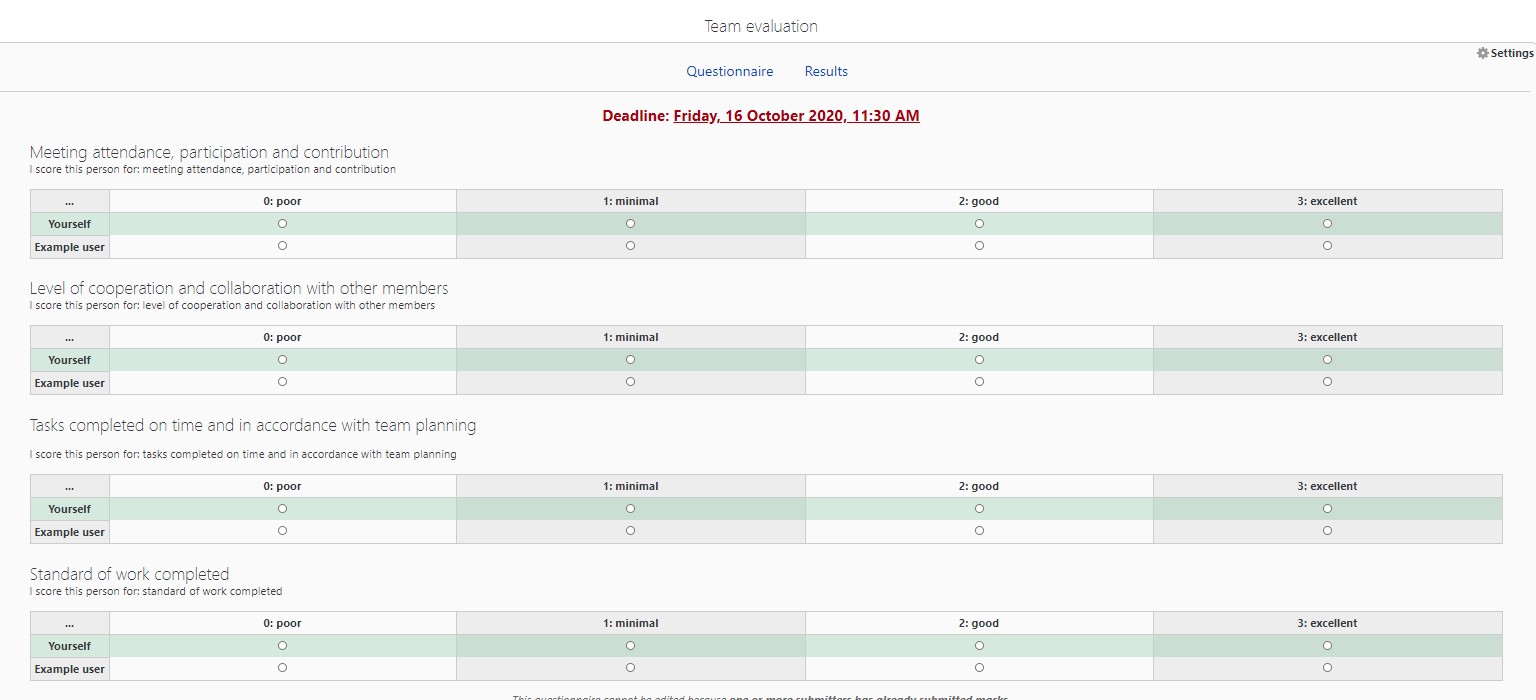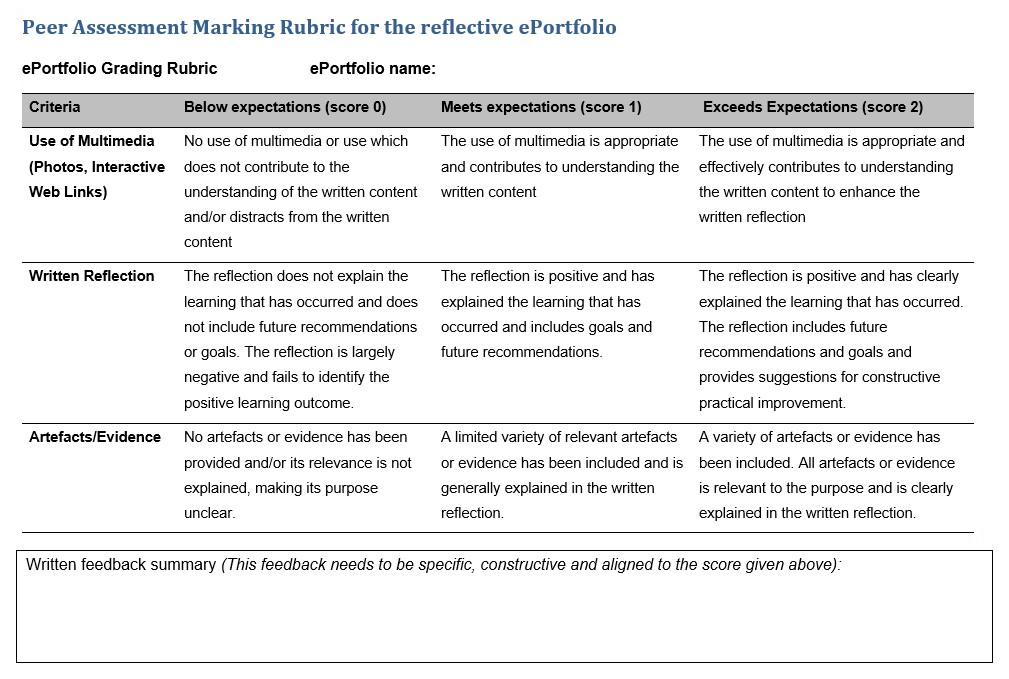Engaging first-year students in group work and peer review

Associate Professor Tracey Kuit | Science, Medicine and Health (SMAH)
By focusing on our goal of engaging and meaningful assessment through group work and peer marking, two Moodle tools were identified as the best choice to support this first-year subject into and beyond remote delivery.
Hi everyone, I'm Tracy Kuit. I'm an Associate Professor in the School of Chemistry and Molecular Bioscience here at the University of Wollongong, and I've been teaching for about 15 years and one of my primary responsibilities is the coordination of our large first-year molecular biology subject, BIOL103 Molecules Cells and Organisms.
And this subject is is really unique, It's it's quite large, in 2020 we had 650 students, but it has a really diverse, diversity in terms of the students that undertake the subject. The subject is core in at least 15 different degree programs, maybe more by now, but students undertaking the subject come from 49 different course programs in 2020. So some with a background in biology, but a lot of students with no background in biology.
Additionally in 2020, we saw an intake of students from UOW College and the Diploma in Science, but also students from the undergraduate Certificate in Science. So I really diverse group of students. So part of the teaching philosophy that I've always adopted is around connectedness as a way of allowing students to connect with others within and outside of their own course of study. But also a way of connecting them to the institution to the teaching team and to whatever the future entails for them. Getting them to really take charge of their future.
And so in 2020 I was really challenged with how to do that fully online. We have 650 students who have never met each other, but I really wanted to keep a major group work research project going and allowed the students to perform reflection on the development of really important T-shaped skills. So in this particular subject to focus on teamwork, skill development and communication skill development.
So in these showcase you'll see examples of how we've used group agreements and the team evaluation tool in Moodle to foster group work as well as using the workshop tool to allow the submission and peer-review of these reflective e-portfolios where 650 e-portfolios were completed and 1950 peer reviews were processed.
So please take a look and if this area is of interest to you and you'd like to discuss anything further, please don't hesitate to contact me. Wishing you all the best.
In Spring 2020, BIOL103 (Molecules, Cells and Organisms) ran as a first-year subject delivered to approximately 650 students. Students were from a range of degrees across UOW that in 2020 also included the Certificate in Science and Diploma of Science (UOW College). The size and diversity of this subject made it a particular challenge even before the move to remote delivery.
BIOL103, already embraced a blended delivery model due to space limitations and student numbers. In this subject students undertake:
- A major group-based project in groups of up to 4 students, where they present their findings via oral seminars on campus.
- A reflective ePortfolio on their skill development through this task (e.g. in communication, teamwork, research).
However this presented challenges in remote delivery around stable Internet conditions, achieving single group presentations online with hundreds of students, supporting students with peer review online and overall engagement, which prompted a redesign, including production of ePoster in place of oral seminars.
Personally, quality online content that is flexible but robust enough to support the students whilst also allowing the teaching team to deliver equitably to hundreds of students has been a part of my teaching philosophy for a long time. In online delivery, I found that students reacted differently to the same engagement tactics, which made things a little trickier. However, group work was a strategy that I found really engaged students and resulted in some great learning outcomes, so needed to be supported during remote delivery. For that purpose, we identified the Team Evaluation and Workshop Moodle tools as the best to support remotely delivered group assessment (ePosters) and peer review of student work (reflective ePortfolios).
How?
Learning is a social activity and so establishing connections between students in groups online is very important. This is even more true when you have hundreds of students, to ensure they are active participants in their learning journey and not left behind. In addition, supporting our students to develop their teamwork skills and establish expectations and accountability in group activities is vital.
Group Agreements via Team Evaluation
In 2020, the students in their groups created and signed group agreements, with a communication strategy and project plan. This occurred at the start of the project, and was then assessment by teaching team and finally evaluated by each team member using the Team Evaluation tool in Moodle (see image below). The resultant Team Evaluation score for each individual was then used to weight the group score they had achieved for the assessment submission (marked by an academic using an established rubric), which in this case was an ePoster. In this way, the result achieved was reflective of the student’s contribution to the task and alignment with group generated expectations. NOTE: This is very similar to a technique employed by Corinne Green (ASSH) in EDPD201.

Overall, using group agreements and weighted Team Evaluation scores reduced the number of group issues, despite being completely online, which was one of my biggest concerns in 2020. In addition, this process reduced the number of complaints I received by students for inactive group members or inequity, as students felt the system was able to better capture individual efforts. Group work is still a double edged sword, but learning to work effectively in groups is essential for all students.
Peer Assessment via Workshop
The Workshop tool was used by students to submit and peer mark reflective ePortfolios students generate evidencing their skill development through the group project. I strongly believe that student learning is best achieved when given time to be reflective and creative in evidencing their learning and development. Additionally, I believe students learn a lot more about their own learning style when they are asked to review the work of others using the same guides/rubrics they are asked to complete a task.
Developing assessment literacy can be challenging, particularly for first year students, but is important for ongoing academic success and growth. In BIOL103 peer marking would normally occur in class with the support of the teaching team. However, in 2020 the teaching team needed to be present online to mentor students through the process. The Workshop tool allowed us to have each student individually peer review the ePortfolios of 3 other students using a simple rubric, generating 1950 reviews (see below).

The subject coordinator only reviews the grades, only intervening where major discrepancies arise or student complaints occur. This is not as many as you think with a well-designed rubric, supportive peer review environment and use of the Workshop tool settings! Additionally, conducting the peer reviews from home actually eliminated some of the restrictions of website access that are blocked using UOW computers.

Overall, students liked participating in this process, and took the process seriously, providing thoughtful feedback. Although students had access to the same marking rubric, it appeared that using the rubric to critically analyse others’ work produced a deeper understanding of the task and how important it is to follow the rubric! If used again and with extra time, we would add practice opportunities involving peer review, so insights could be applied to a graded task of their own. Additionally, now that we have a cohort’s submissions, perhaps exemplars could be used!
Reflection
Group work should be scaffolded and clear expectations established by the group and all group members should be accountable. This does require support from teaching staff and in my case a team of people were involved. So having time in your subject delivery model to establish the groups and create group agreements is a worthy investment, as is creating ongoing communication strategies and group record keeping and using a mid-way point for students to see how the group is performing. For more information about communicating with students in groups in and outside of formal class time please see my other Showcase submission on the use of Webex Teams.
Peer review can assist student learning immensely and although they may not necessarily like it, if well scaffolded, can be successful. My experiences show that students, even at first year, can provide good reviews of student work, applying simplified rubrics and providing meaningful feedback. However they need to know that there was support to ensure this is carried out seriously or they will distrust the results. My advice is do not weight a peer review task too heavily, construct a simple easy to apply rubric, mentor them during the review and do not allow markers to straddle borders. Plus play around with the workshop tool parameters to suit your context.
The team that brings the subject together must act as a team. These kinds of assessments with this many students (~650) can only be achieved when there are shared intentions across all teaching members. To achieve this, we would come together weekly to reflect on what we hope to achieve, what resources we have, what worked, what did not, and what was happening with the students. As a subject coordinator, supporting my team ensures consistency and equity for my students, ensure ongoing development and can reduce my overall workload, plus it makes my job far more enjoyable. Investment in your team is vital.
Use group work to prioritise meaningful engagement and support staff workload. I am a huge fan of connectedness, however I also use the establishment of student groups as a platform for students to seek support from one another. I cannot be available to 650 students (and that is just one subject) instantly, however I promote the use of: Moodle discussion forums where students can help each other and staff can interact, established group communication strategies (see my use of Webex Teams), a subject-based email address (that can be managed by more than 1 person) and clearly established student and staff expectations and responsibilities to ensure student learning is supported whilst not overburdening staff workloads. Utilise student groupings to support one another and reduce the potential for too many emails with queries that students could address themselves.
Support resources
- Marking Rubrics | L&T Hub resource
- Discussion Forums | L&T Hub resource
- Practice Opportunities & Academic Integrity | L&T Hub resource
- Workshop Activity in Moodle | IMTS Knowledge Base Article
- Team Evaluation: Overview | IMTS Knowledge Base Article



